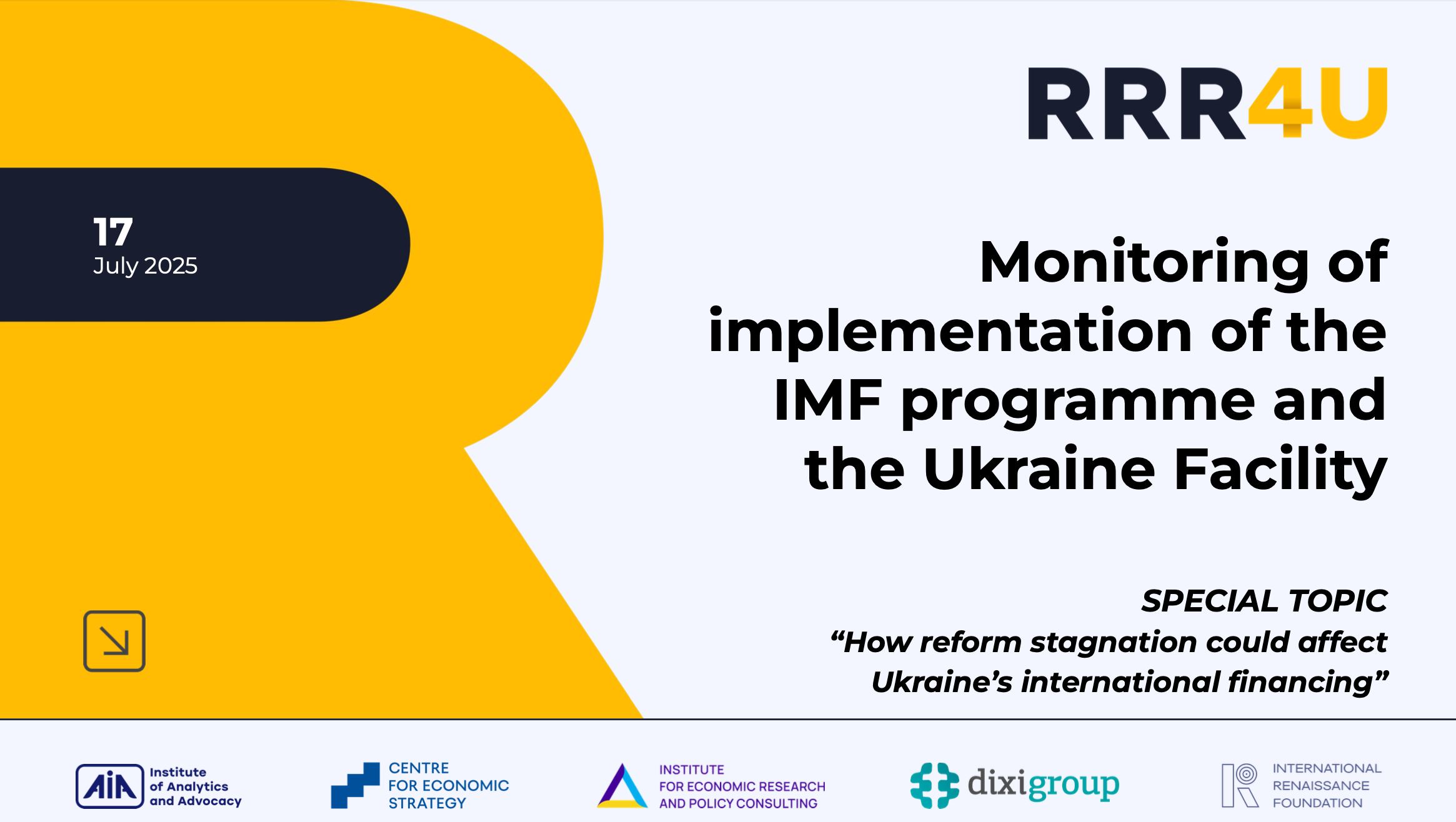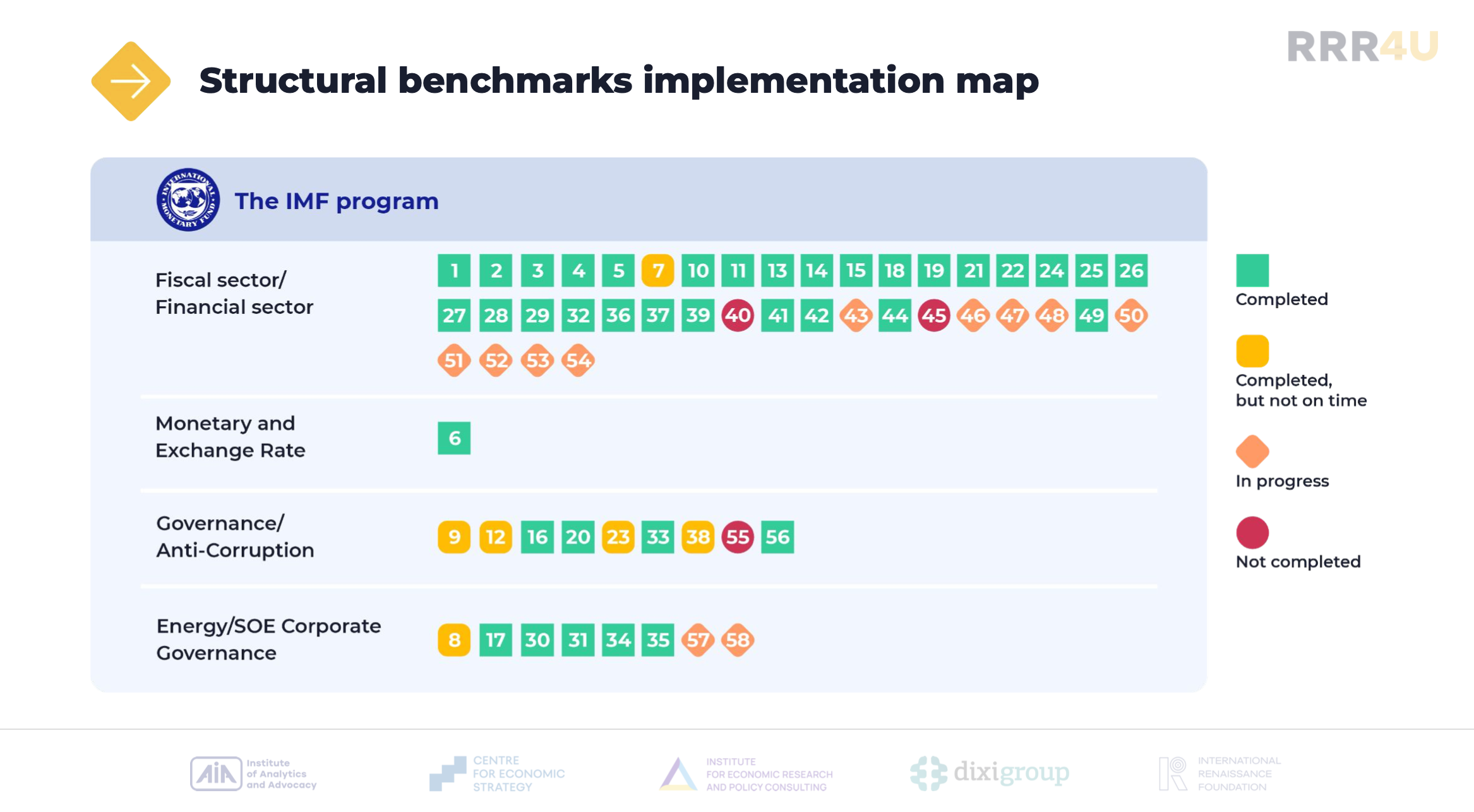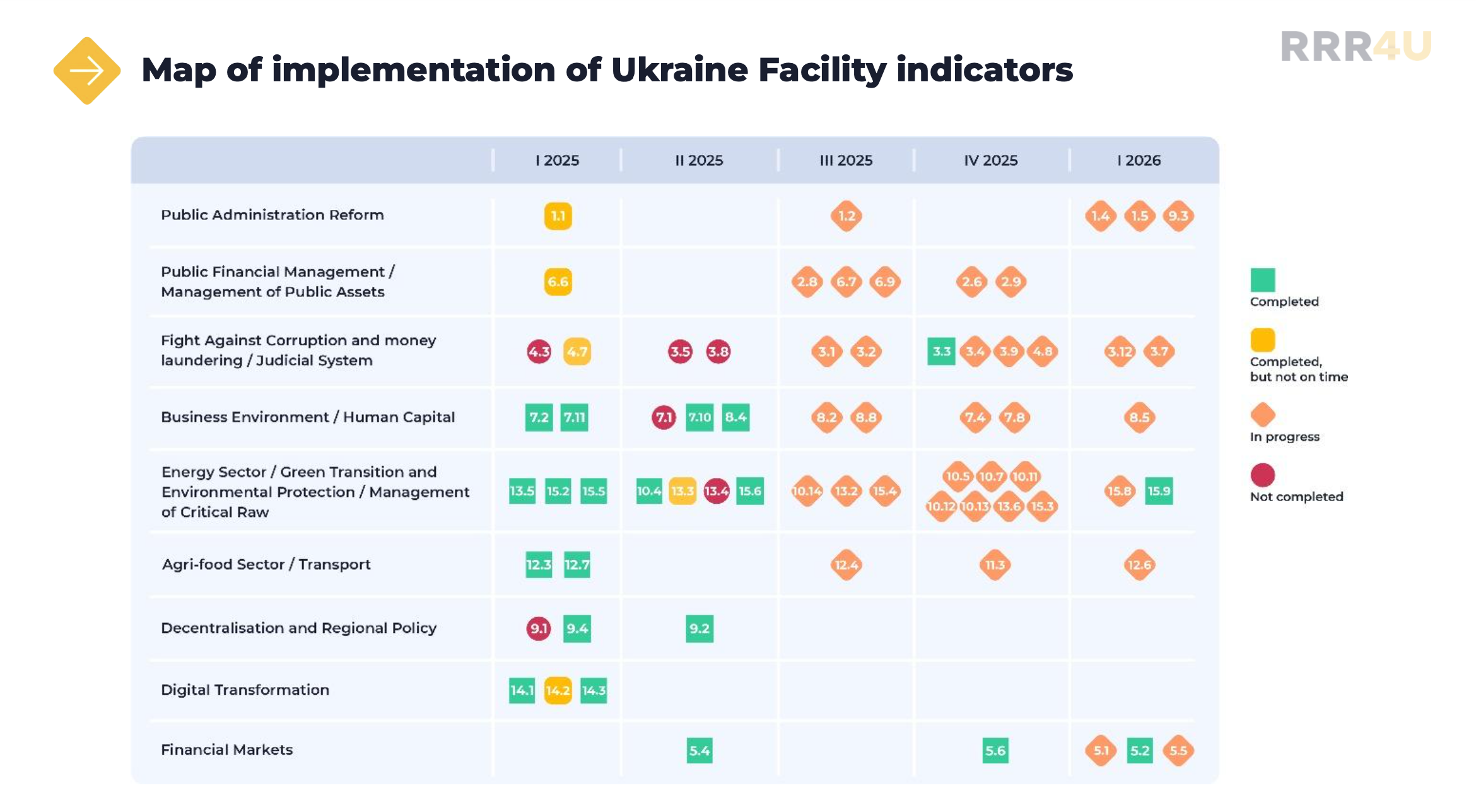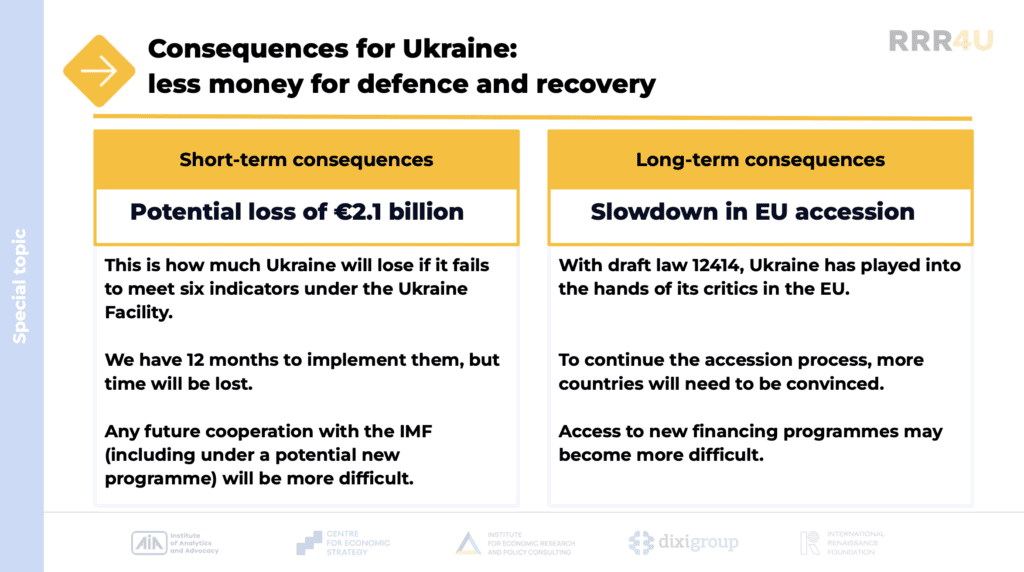
The logic of Ukraine’s key partners — “money in exchange for reforms” — is to stimulate changes that are critically needed by Ukraine itself. And this logic will only intensify.
The IMF programme and Ukraine Facility are markers of trust for other external partners. They remain important for coordinating and securing other international support.
Losing momentum in reforms threatens not only progress towards EU membership, but also the very survival of the state. The issue of covering the budget deficit is already acute this year. Priority expenditures depend on external financing.
The loss of fiscal stability is a real risk for a country fighting a war of attrition. Delays in reforms or even hints of a rollback (e.g., attempts to limit the independence of anti-corruption institutions) could have fatal consequences.
Change is possible if reforms are put back on the political agenda. And they should be implemented not so much “for partners” as for ourselves.
IMF
The IMF remains “indulgent” towards Ukraine. The eighth review of the Extended Fund Facility (EFF) is positive, with a number of Benchmarks postponed. Ukraine has received the ninth tranche of almost $500 million.
At the same time, the programme has been supplemented with new Benchmarks, including some that are quite “difficult” for Ukraine. Another review is needed this year, with almost $1.5 billion at stake.

Benchmarks to be assessed during the ninth review, to be completed by the end of September:
- New tax reporting requirements for digital platform operators Submit the Budget Declaration for 2026-2028 on time
Publish the report on the results of the external audit of NABU Appoint the head of the ESBU (end of July) - Repeal the “Lozovoy Amendments” and introduce additional powers for the SAP (end of July, previously end of December 2024)
- Independent verification of the compliance and integrity of NSSMC members (end of August)
- Adoption of the updated Single Project Portfolio by the Strategic Investment Council (end of August)
- Review the selection and appointment process for members of supervisory boards of state-owned enterprises (end of August)
- Adoption of an operational plan for the updated IT strategy shared by the Ministry of Finance, the State Tax Service and the State Migration Service (end of September)
- Ongoing regulation on the subordination of all state-owned banks to the Ministry of Finance, etc.
EU
The implementation of the Ukraine Plan is ongoing under the Ukraine Facility.
The EU has applied “negative conditionality” for the first time. The price of failing to meet three indicators of Ukraine Facility for the Q1 2025 is €1.4 billion in lost funding. The indicators for the Q2 2025 are even worse: four indicators remain unfulfilled, which calls into question the receipt of another €1.27 billion in aid.
The lag in the implementation of both programmes raises the question of revising and updating them while maintaining the ambitious reform agenda. In particular, discussions are underway on a new IMF programme and changes to Ukraine Facility.



Status of implementation of Ukraine Facility:
- In the Q1 2025, Ukraine was supposed to receive €4.48 billion. However, it will only receive €3.08 billion because three indicators were not met at the time the Government submitted its report to the European Commission.
- The CMU partially implemented its protocol decision on monitoring the implementation of Ukraine Facility.
- Taking into account the unfulfilled indicators for the first and second quarters of 2025, €2.1 billion in funding is in question.
Ukraine is completely dependent on international financing, which will be insufficient in 2026
- Ukraine allocates 66% of all government spending to defence
- Ukraine finances civilian spending with funds from foreign partners
- International funding is provided in exchange for reforms
- Reforms are needed by Ukraine itself
- According to government estimates, Ukraine will need more than $40 billion in foreign funding by 2026
- There is a shortfall of $13+ billion
- Any delay or loss of funding weakens Ukraine’s position in the war of attrition
Ukraine’s significant failure to fulfil its commitments began in 2025
- The IMF counted Ukraine’s late benchmarks as fulfilled and was loyal to non-compliance if there was an explanation.
- The Ukraine Facility included a mechanism for reducing payments from the outset.
- The EU may also demand the return of funds already disbursed if Ukraine rolls back
- reforms.
- Bill 12414 has undermined trust in Ukraine: donors may become more demanding.



Ukraine must fulfil its commitments in full and on time
Those formally responsible for implementing the benchmarks and indicators are clearly defined. Delays in implementing commitments have mostly been due to insufficient technical capacity. However, the (in)success of those responsible affects the whole of society, so everyone must be involved — it is in our common interest. Is there still political will in Ukraine to implement reforms?
You can view the previous monitors on the website RRR4U
The monitoring was prepared with the support of the International Renaissance Foundation.
RRR4U (Resilience, Reconstruction and Relief for Ukraine) is a consortium of four Ukrainian civil society organisations: Centre for Economic Strategy, Institute for Economic Research and Policy Consulting, Institute of Analytics and Advocacy and DiXi Group.
